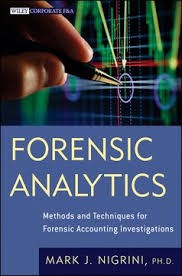
Forensic Auditing and Investigation Techniques in Procurement and Employee Fraud Online Course Trending
E-LEARNING
Recommended Duration: Maximum of 2 days
(This course fulfills the ICFA CPD requirements)
Introduction
- Economic crime is an enormous social problem whose consequences are often not fully realized by the public at large.
- ACFE 2018 study estimates that a typical organization loses 5 percent of its annual revenues to fraud.
- When applied to the estimated 2016 Gross World Product, this figure translates to a potential global fraud losses approaching $4 trillion in a year!
- The combined states of the African Union nominal gross domestic product (GDP) is US$2,200.861 billion in 2017
Fraud: The overlooked competitor
PwC 2018 Global Economic Crime and Fraud Survey using Zambia as a case study (ditto in most developing countries) Summarized it like this:
- 79 respondents took part in the survey in Zambia
- 2 in 3 organizations of Zambia respondents reported having experienced at least one form of economic crime in the past two years
- Procurement Fraud has increased from 25% in 2016 to 31% in 2018 in Zambia organizations
- This is a high prevalence rate!
- The results from the survey indicate that economic crime in Zambia continues to be a pervasive problem requiring serious, well thought out and even societal interventions to prevent and control it.
- So, our mission today is to confront this hydra headed monster of frauds from the point of knowledge and liberate our citizens and organizations from the grip.
LEARNING OBJECTIVES
At the end of this session, participants will be able to:
- Explain the principles of forensic audits and investigations in procurement functions
- Discuss the techniques available to audit and investigate procurement frauds
- Describe the professional and legal requirements for procurement auditing
- Identify the elements of procurement frauds and misconduct
- Discuss employee frauds
- Explain various types of employee fraud and their causes
- Describe the detection and prevention of employee fraud
- Display the required knowledge; skills and techniques needed to prevent, detect and deter fraud in organizations
Lesson 1 (Morning Session) Forensic Audit/Investigation of Procurement Fraud
- Definition
- Indications of Procurement Fraud
- The Indication pervades the entire process
- Manifestations of Procurement Frauds
- Procurement fraud..How do you audit what you don’t understand?
- Cost/labor mischarging
- Defective pricing
- Price fixing and bid rigging
- Bid Suppression
- Complementary Bidding
- Bid Rotation
- Subcontracting
- Market Division
- Product substitution
- Examples of Fraud/Corruption in Procurement
- Mandate for Procurement Audit
- Check List for Auditing the Procurement Function
- Auditing the preparation of Procurement
- Auditing the Award Procedure
- Auditing the management of Contract
Lesson 1 (Afternoon Session) – Employee Fraud
- Employee: Greatest Asset/Greatest Threat
- Fraud
- Fraud Triangle Explains it..
- Employee Fraud or
Occupational Fraud - LARCENY
- An Example of Cash Larceny
- SKIMMING
- What is a Red Flag?
- The Importance of Red Flags for Fraud
- Opportunity Red Flags
- Changes in Behaviour “Red Flags”
- Red Flags in Cash/Accounts Receivable
- Red Flags in Payroll
- Red Flags in Purchasing/Inventory
- Prevention
- Detection
Lesson 1 (Morning Session) Forensic Audit/Investigation of Procurement Fraud
Lesson 1 begins with the definition and introduction to procurement fraud. It opens up with the various types of procurement frauds and discusses the characteristics of each as well as the modus operandi, citing some examples. The lesson further interrogates the mandate for procurement audit. It explores the background of fraud and explains the popular fraud triangle. It concludes by discussing the Check List for Auditing the Procurement Function, Auditing the preparation of Procurement, Auditing the Award Procedure and Auditing the management of Contract. Topics covered in the Morning Session are:
- Definition
- Indications of Procurement Fraud
- The Indication pervades the entire process
- Manifestations of Procurement Frauds
- Procurement fraud..How do you audit what you don’t understand?
- Cost/labor mischarging
- Defective pricing
- Price fixing and bid rigging
- Bid Suppression
- Complementary Bidding
- Bid Rotation
- Subcontracting
- Market Division
- Product substitution
- Examples of Fraud/Corruption in Procurement
- Mandate for Procurement Audit
- Check List for Auditing the Procurement Function
- Auditing the preparation of Procurement
- Auditing the Award Procedure
- Auditing the management of Contract

